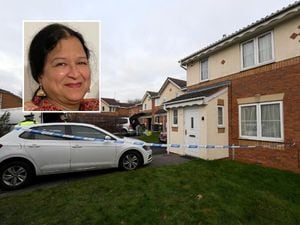Special report: It's time to talk about dementia in the West Midlands
"You learn on the hoof. It is a dreadful illness and most terrible for people when they are first diagnosed," says Margaret Morris. She cares for her husband Bernard, who suffers from Alzheimer's Disease.
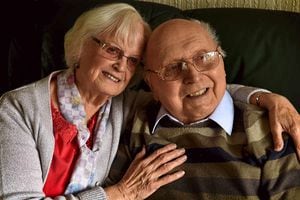
More and more people are finding that they are taking on the responsibility of looking after family members or even friends that are suffering dementia and a recent survey of GPs showed almost 70 per cent believed the National Heath Service was failing dementia patients.
Dementia is an umbrella term used to describe many different types of the condition, including Alzheimer's Disease. Symptoms can include memory loss, confusion and problems with speech.
Mr Morris, aged 87, a retired Midland Red coach driver, was diagnosed with Alzheimer's seven years ago and is on medication to stem its progress.
But after all this time it is only now that he is getting help from the authorities with his care.
Before he was being looked after solely by his wife of 65 years, Margaret, with some help from their children, who are facing health issues of their own.
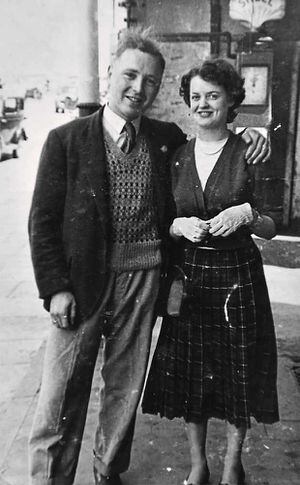
The couple, of Lazy Hill, Aldridge, are among the 73,000 in the region who are struggling to cope with the rigours of living with some form of the condition in the family. A recent Alzheimer's Society poll found that GPs in the West Midlands believe patients with dementia are being failed by health and adult social service and that with the burden of care is falling on their relatives. The study's findings showed that 67 per cent of doctors thought patients were not getting enough support.
More than three quarters, or 77 per cent, said their patients rely on family members.
A total of 73 per cent said patients have to rely on unpaid carers such as friends and neighbours and 78 per cent of GPs are signposting patients to the society for help.
The report also found many surgeries are less likely to refer sufferers with suspected dementia for diagnosis if there is not enough support in place, citing a lack of accessible NHS and social services programmes as the main barrier.
Mrs Morris, 84, and a retired headteacher, said: "It was his doctor who identified it. Looking back I wasn't aware.
"He was then given an appointment with a memory clinic and he had an MRI scan at Walsall Manor Hospital.
"It was a great learning process from my point of view because of the changes that took place in our lives and attending to Bernard's needs. I've really had to work to keep things going. We go for short walks every day because he has arthritis. I do activities with him through us visiting the dementia cafes. His memory has worsened so much now that he needs me for every small thing. He will do things as long as I'm there. I do his shaving, washing and dressing which I don't mind at all. I try to allow him his independence, but it is a fine line.
"Support was lacking at the beginning. I didn't even know where to go. I would agree with the Alzheimer's Society survey, I did feel terribly alone."
She even started to pen a journal of her experiences to help cope with the problems as they arose.
Mrs Morris explains that because her husband did National Service in the army, The Royal British Legion referred them to its Admiral Nurse's scheme. As result she gets six-weekly visits from a nurse with mental health training which is mainly aimed at providing a listening ear for her as the carer. She says this has been invaluable.
"This has come late to us. We were very much on our own with no care support. We've only just started to get help from social services. They are now carrying out welfare checks for two hours once a week when a carer comes to sit with Bernard so that I can have time to myself.
"I try to keep going. It's not something that I would wish on anyone and you do the best you can. We have been very fortunate in our lives and support each other.
"You learn on the hoof. It is a dreadful illness and most terrible for people when they are first diagnosed. I feel my teaching experience has helped me to manage it. I'm concerned about how people are coping. I am sometimes invited to give talks about our experience. I'll do it if it will help someone else. It's no good grumbling. It's best to try doing something about it instead."
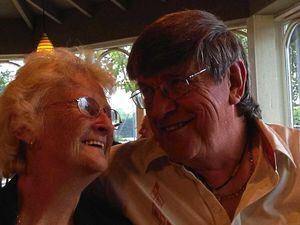
Geoff Ward, 69, of Fallings Park, Wolverhampton, looks after his wife Chris, 70, who was diagnosed with vascular dementia three years ago. They had previously cared for relatives with similar conditions. The retired market researcher said: "We went to see some friends in Lancashire for Christmas. We were driving home and talking when Chris suddenly said 'did we have Christmas yesterday?' That was when we realised something wasn't right. We went to the GP and the nurse did a memory test, then she went to see the memory team and dementia was diagnosed.
The problem after that there is no medication for vascular dementia so there is no need to keep going back to GPs. They are busy and you cope as best as you can."
He attends dementia cafes with Mrs Ward, a retired bookkeeper, to socialise and a forum at New Cross Hospital to raise awareness among staff of what to do when patients with the illness are admitted with a separate medical complaint.
He recounts how after treatment for gall stones his wife became restless and wanted to leave the ward. "Within an hour Chris was ready pull out the drip out of her arm because she wanted to go home. I called the nurse to explain to her why she couldn't go home, only for the nurse to reply that she had told her that once already.
"Unfortunately with dementia patients you have to tell them things several times over. I'm also concerned about the plans to close the dementia ward at New Cross."
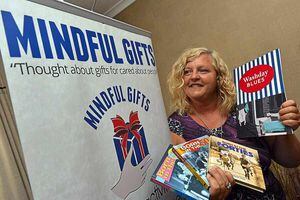
Vicki Phipps, founded of Mindful Gifts based in Darlaston, a shop specialising in gifts and other items for people with dementia, including jigsaw puzzles and colouring books. She said: "We see people on a daily basis coming into the shop for advice and most of all a listening ear. We find that carers or relatives often feel alone and sometimes don't think about their own health needs until sometimes it's too late and they can't cope anymore.
The Alzheimer's Society regional operations manager for the West Midlands, David Ash, said: 'These recent findings go to show just how important it is for health and social care services to be working together to support people with dementia and their families. We are pleased to be involved in providing services and are already seeing an improvement in diagnosis rates through improved GP awareness."
In Wolverhampton around 3,600 residents have the condition. The city has set up the Dementia Action Alliance comprising 30 organisations including Age UK, Alzheimer's Society, Asda, Beacon Centre for the Blind, Black Country Partnership for Care and BME United to tackle support issues.


